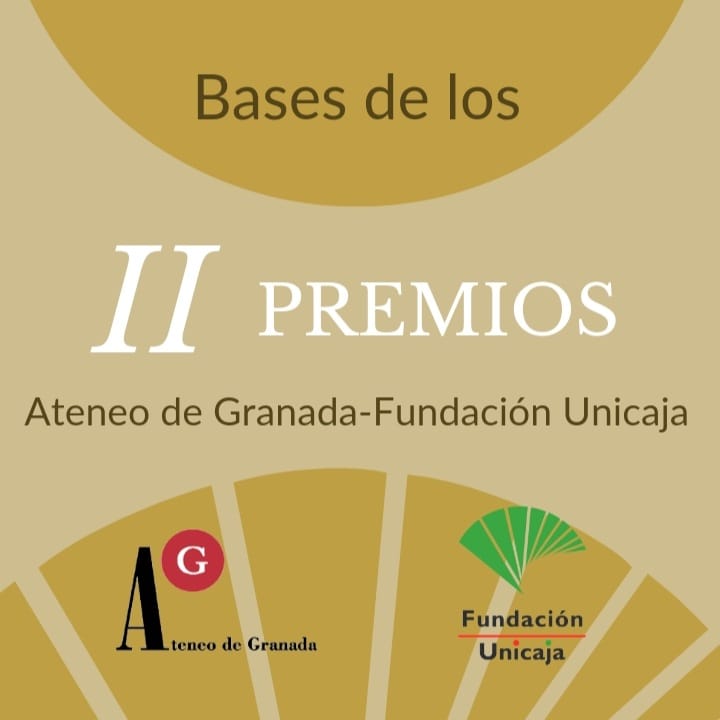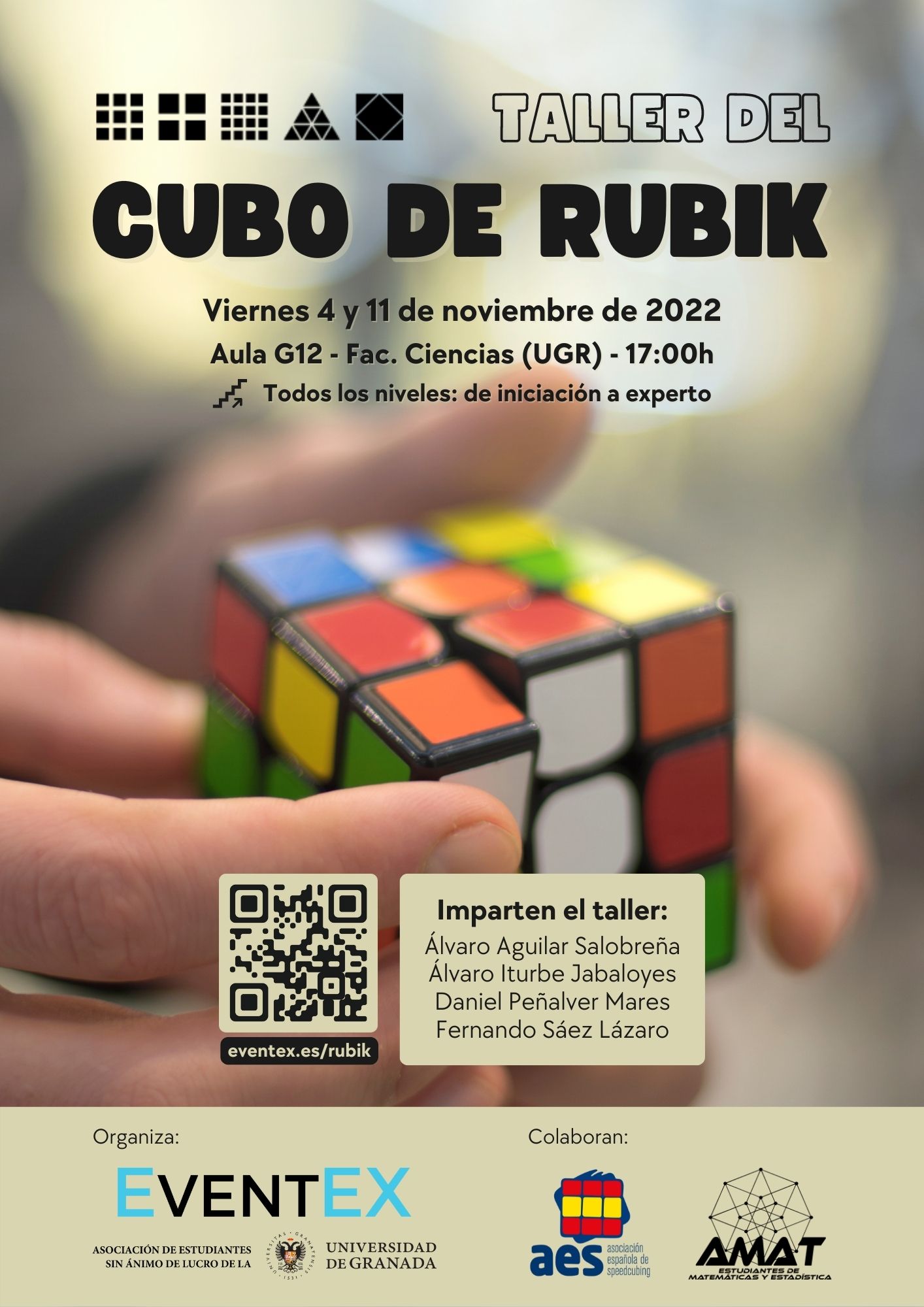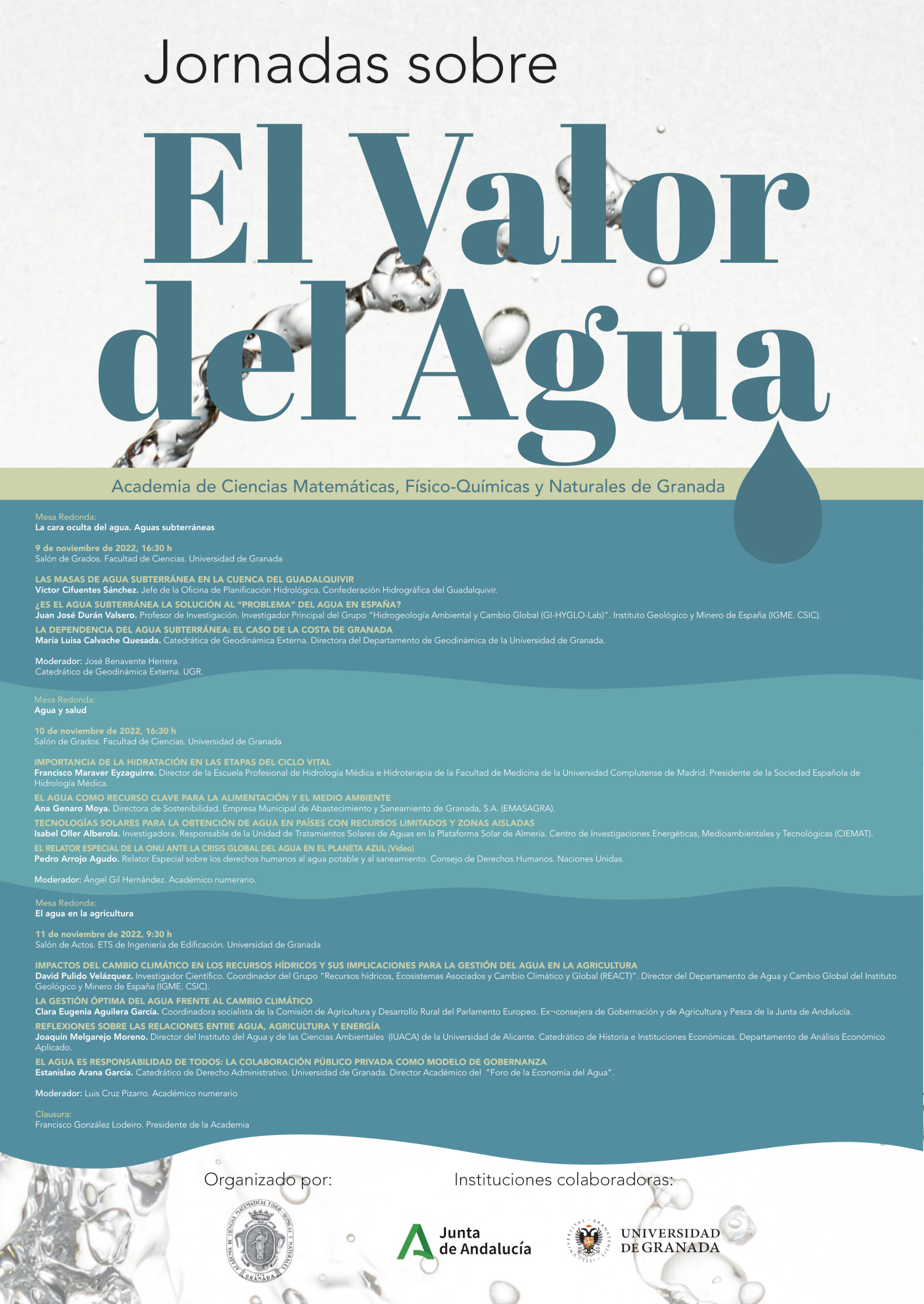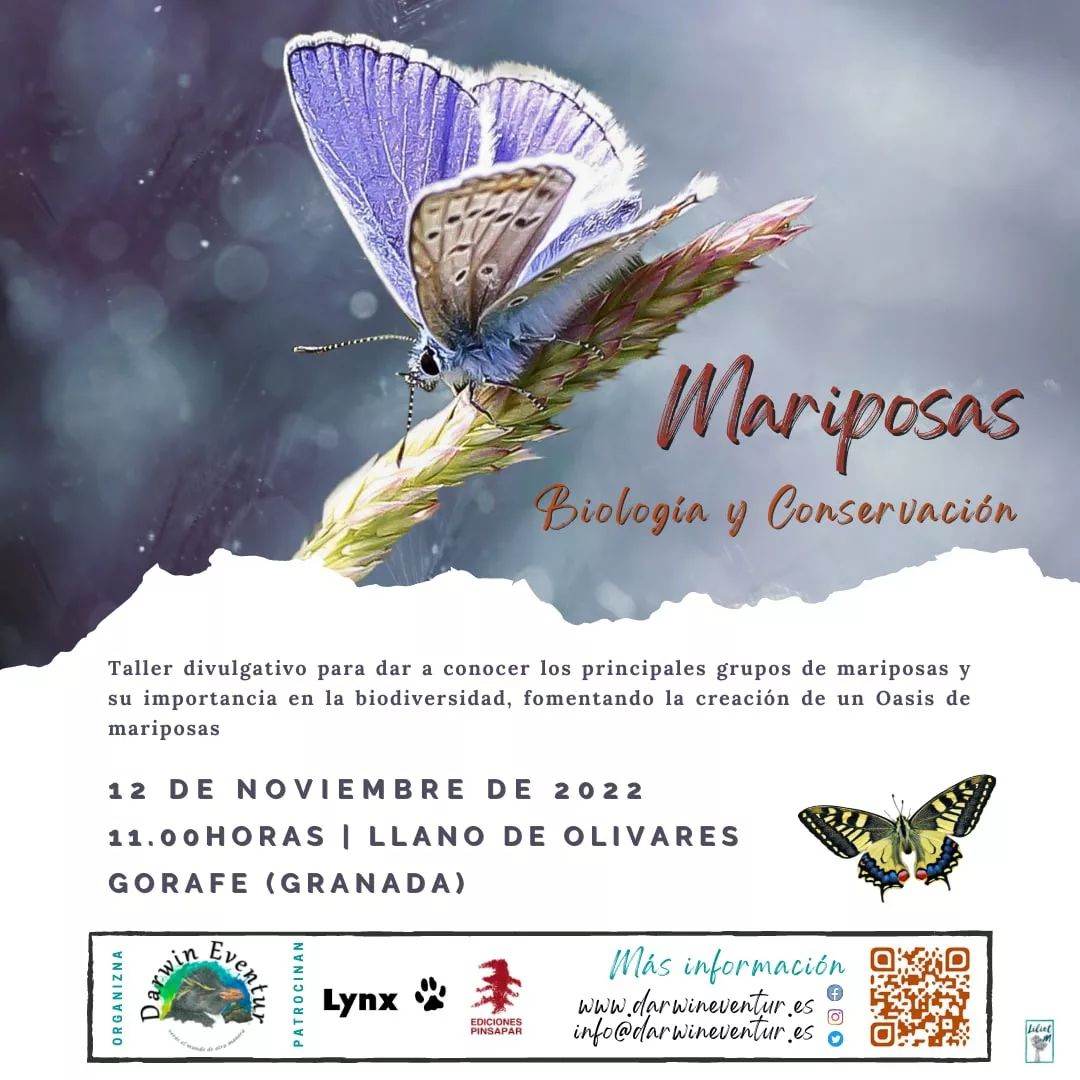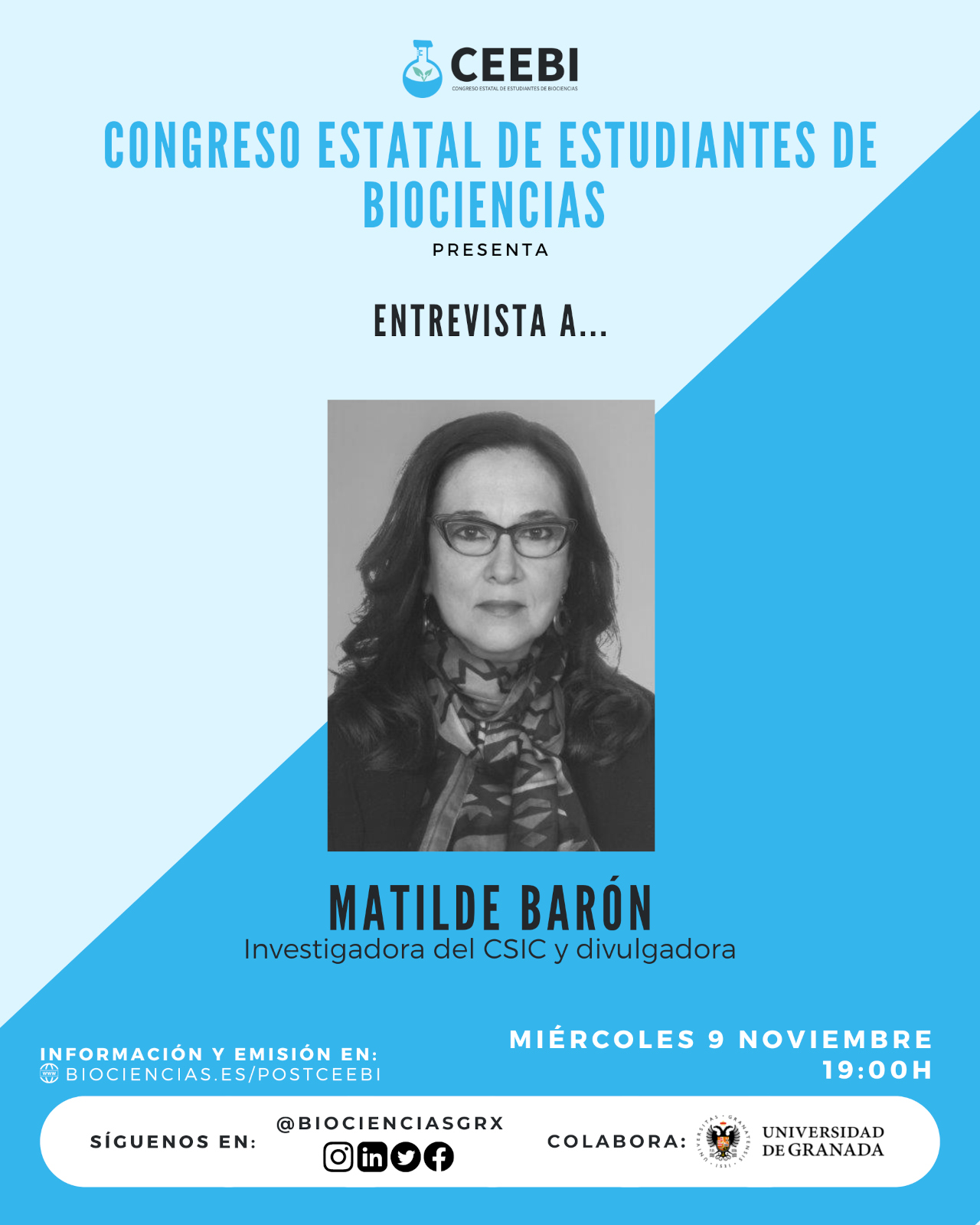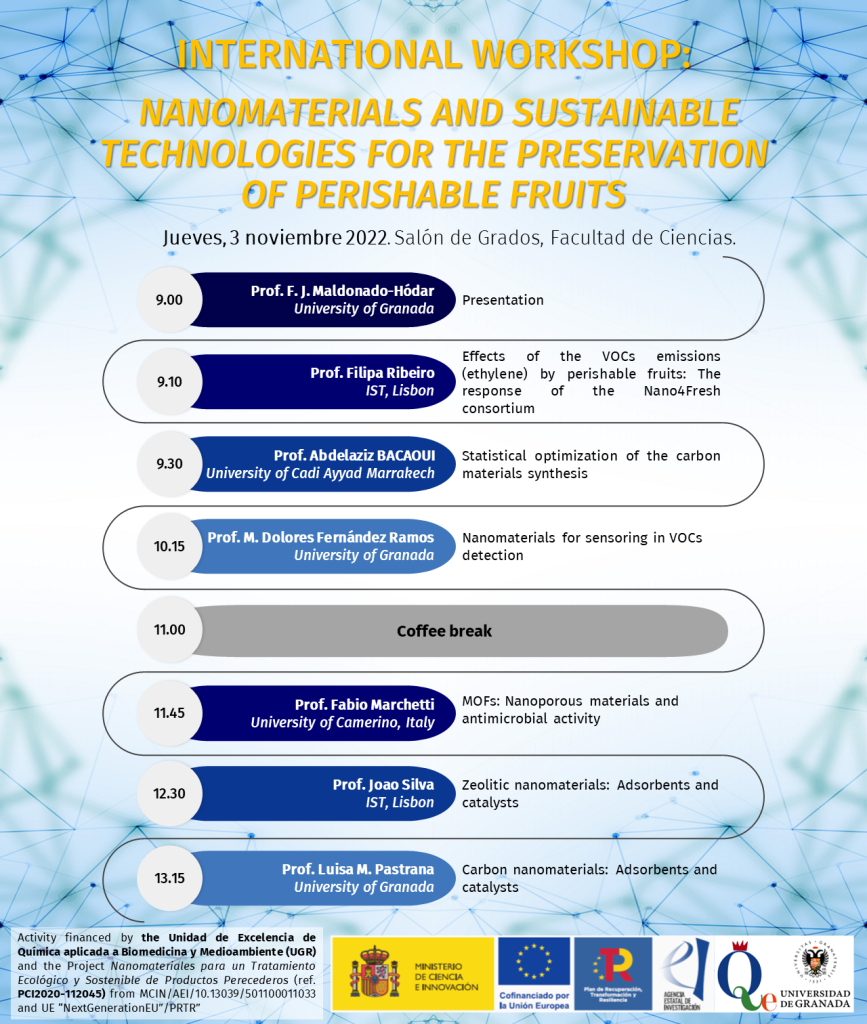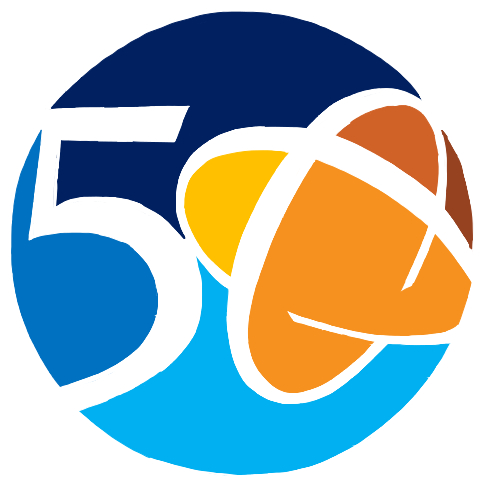Noticias
Ateneo de Granada y Fundación Unicaja hacen pública la segunda convocatoria de los Premios Ateneo de Granada-Fundación Unicaja, dirigidos a promover y reconocer la labor científica, técnica, cultural, social y creativa de jóvenes talentos andaluces.
Los premios constan de tres categorías:
- Creación Artística.
- Investigación en Letras y Ciencias Sociales.
- Investigación Científica y Técnica.
El premio está dotado con 1.500 euros para el trabajo ganador de cada una de las categorías establecidas y podrán concurrir a este premio personas de entre 18 y 35 años de edad.
El plazo de admisión de candidaturas expira a las 00:00 horas del 13 de noviembre de 2022, estableciéndose además una ceremonia de entrega que tendrá lugar en enero de 2023.
Bases completas y formulario de inscripción
Fecha: Viernes 4 y 11 de noviembre de 2022.
Hora: de 17:00h a 20:00h.
Lugar: Aula G12 de la Facultad de Ciencias.
Inscripción: No necesaria.
Coste: Gratuito.
Dirigida a: Estudiantes universitarios y cualquier persona interesada en aprender a resolver el cubo de Rubik o en mejorar su tiempo de resolución.
Aprende a resolver el cubo de rubik 3x3 en su versión sencilla o, si ya sabes hacerlo, aprende nuevos métodos para hacerlo más rápido o aprende incluso otras categorías (2x2, 4x4, pyraminx o skewb). Es un taller para todos los niveles, desde nivel 0 (iniciación) y hasta experto. Puedes traerte tu propio cubo o utilizar los que llevará la organización.
El taller se imparte 2 días (4 y 11 de noviembre). Puedes asistir uno de los dos días o puedes asistir ambos, como tú quieras.
Este taller está impartido por Álvaro Aguilar Salobreña, Álvaro Iturbe Jabaloyes, Daniel Peñalver Mares, y Fernando Sáez Lázaro.
Contacto: Escribe a través de o de su instagram @EventEXgranada y te responderán encantados a todas tus preguntas.
Organiza: Asociación Juvenil Event Experience Organization (EventEX).
Colaboran: Asociación de Estudiantes de Matemáticas y Estadística (AMAT) y Asociación Española de SpeedCubing (AES).
Fecha: 9, 10 y 11 de noviembre 2022.
Hora: 16:30 h la primera y segunda mesas redondas y 9:30 h la tercera.
Lugar: Salón de Grados de la Facultad de Ciencias primera y segunda y Salón de Actos ETS Ingeniería Edificación la tercera.
Contacto: Luis Cruz Pizarro. Departamento de Ecología.
La Academia de Ciencias de Ciencias Matemáticas, Físico-Químicas y Naturales de Granada ha organizado unas Jornadas sobre el Valor del Agua que se estructuran en tres mesas redondas. La primera lleva por titulo La cara oculta del agua. Aguas subterráneas y tendrá lugar el próximo 9 de noviembre de 2022 a las 16:30 h en el Salón de Grados de la Facultad de Ciencias. La segunda mesa redonda trata acerca de Agua y salud y se llevara a cabo el 10 de noviembre de 2022 a las 16:30 h en el Salón de Grados de la Facultad de Ciencias. La tercera y última mesa redonda se titula El agua en la agricultura y tendrá lugar el 11 de noviembre de 2022 a las 9:30 h en el Salón de Actos de la ETS de Ingeniería de Edificación.
Díptico informativo (pdf).
Fecha: 12 de noviembre de 2022.
Hora: 11.00 horas.
Lugar: Término Municipal de Gorafe, en el corazón del Geoparque de Granada.
Dirigido: a todo tipo de público. Niños a partir de 5 años.
Plazas: 6 mínimo – 12 máximo.
Duración: 2 horas y 30 minutos aproximadamente.
Precio/persona: 15 euros. Niños hasta 12 años: 5 euros.
Las mariposas juegan un papel importante en el ecosistema natural ya que son polinizadores y alimento en la cadena alimentaria (de aves, arañas, lagartijas…). La principal amenaza para las mariposas y otros invertebrados es la destrucción o alteración de sus hábitats por ello es importante llevar a cabo proyectos de divulgación y conservación de estas especies y su hábitat.
Con este taller se dará a conocer los principales grupos de mariposas y su importancia en la biodiversidad, fomentando la creación de un oasis de mariposas.
Organiza: Asociación Darwin Eventur.
Fecha: 09/11/2022.
Hora: 19:00h.
Lugar: Online a a través de los enlaces Youtube, LinkedIn o por Twitter.
Ponente: Matilde Barón, investigadora del CSIC y divulgadora científica.
Como parte de la primera edición del Congreso Estatal de Estudiantes de Biociencias (CEEBI) celebrado del 19 al 22 de julio de 2022, se está llevando a cabo un ciclo de entrevistas online a mujeres en la ciencia. En estas entrevistas podrás conocer a mujeres de todo el ámbito científico tanto a nivel nacional como internacional, así como su trayectoria educativa y profesional que han seguido para alcanzar su actual puesto. De la mano de estas científicas, podrás conocer las distintas salidas profesionales a las que se dedican. ¡¡Te sorprenderá la cantidad de cosas que han hecho!!
Fecha: 3 de noviembre de 2022.
Hora: 9:00 horas.
Lugar: Salón de Grados de la Facultad de Ciencias.
Esta actividad está dirigida a alumnos y profesionales que podrán asistir a ponencias impartidas por investigadoras de la propia Universidad de Granada e investigadores de centros y universidades extranjeras: Instituto Superior Técnico (Universidad de Lisboa), Universidad Cadi Ayyad (Marruecos), Universidad de Camerino (Italia).
Un total de 6 ponencias (40 minutos cada una) con una sesión coffe break en mitad.
Rogamos inscripción previa enviando un correo a con los siguientes datos:
- Nombre y apellidos.
- Centro; Departamento.
Organiza: Unidad de Excelencia de Química Aplicada a Biomedicina y Medioambiente, y el grupos de investigación Nanomateriales y Tecnologías Químicas Sostenibles (NanoTech) de la Facultad de Ciencias (Project PCI2020-112045 “Nanomateriales para un Tratamiento Ecológico y Sostenible de Productos Perecederos” from MCIN/AEI/10.13039/501100011033 and UE “NextGenerationEU”/PRTR).




